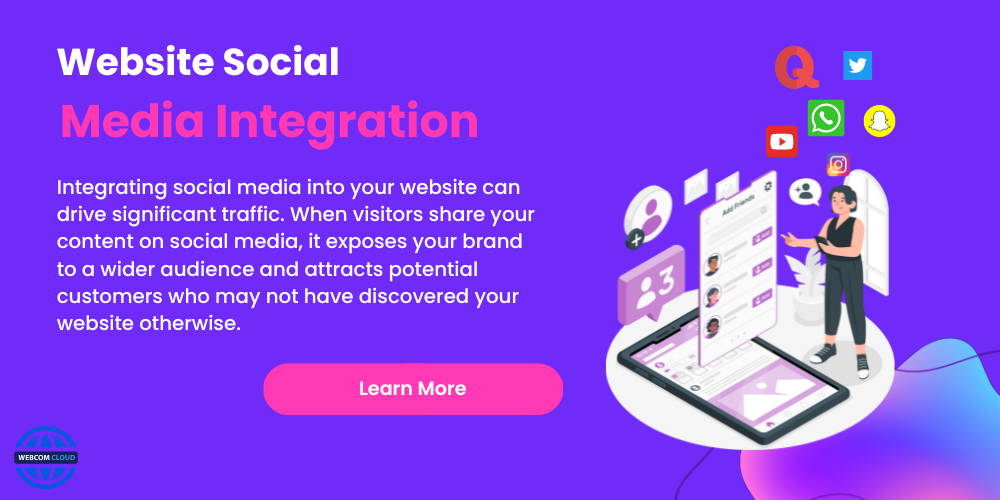Website Social Media Integration
The Power of Website Social Media Integration
In today’s digital landscape, social media platforms have become a crucial part of our daily lives. They have revolutionized communication, connecting people from around the world and providing a platform for businesses to reach their target audiences. One effective strategy for businesses to maximize their online presence and engage with their audience is through website social media integration. In this article, we will explore how to integrate social media into your website, provide examples of successful implementations, and discuss the numerous benefits it offers.
How to Integrate Social Media into Your Website
Integrating social media into your website is relatively straightforward and can be accomplished through various methods. Here are a few common approaches:
- Social Media Share Buttons: Placing social media share buttons on your website allows visitors to easily share your content on their preferred social platforms. These buttons can be strategically positioned alongside articles, blog posts, images, or videos.
- Social Media Feeds: Displaying real-time social media feeds on your website keeps visitors updated with your latest posts, tweets, or Instagram pictures. It adds dynamism to your website and encourages visitors to explore your social media profiles.
- Social Media Login: Offering social media login options on your website simplifies the registration and login process for users. By allowing them to sign in using their social media accounts, you eliminate the need for lengthy forms and enhance user experience.
- Social Media Plugins: Content management systems (CMS) like WordPress offer various plugins that seamlessly integrate social media functionalities into your website. These plugins enable features such as social sharing, embedded social media posts, and social media follow buttons.
Examples of Successful Website Social Media Integration
- Nike: Nike is renowned for its effective social media integration. Their website features social media share buttons alongside product listings, allowing users to easily share their favorite products on platforms like Facebook, Twitter, and Pinterest. Nike also showcases its social media feeds, providing visitors with a glimpse into their vibrant social media presence.
- The New York Times: The New York Times incorporates social media login options on their website, allowing users to sign in using their Facebook or Google accounts. This streamlines the login process and enhances user convenience. Additionally, they feature social media share buttons alongside their articles, empowering readers to share captivating news stories with their social networks.
Benefits of Website Social Media Integration
- Increased Website Traffic: Integrating social media into your website can drive significant traffic. When visitors share your content on social media, it exposes your brand to a wider audience and attracts potential customers who may not have discovered your website otherwise.
- Enhanced Brand Visibility: By embedding social media feeds or sharing buttons, you increase your brand’s visibility across different platforms. This boosts brand recognition and allows users to engage with your content directly from your website, promoting brand loyalty and engagement.
- Improved User Engagement: Website social media integration encourages visitors to interact with your content and share their thoughts. Social media sharing buttons enable users to comment, like, and repost your content, fostering discussions and expanding your reach.
- Valuable Customer Insights: Integrating social media into your website provides an opportunity to gather valuable customer insights. By monitoring social media feeds, comments, and shares, you can gain a deeper understanding of your audience’s preferences, needs, and opinions.
- Enhanced SEO Performance: Social media integration can positively impact your website’s search engine optimization (SEO). Increased social signals, such as likes, shares, and comments, indicate content quality to search engines, potentially improving your organic search rankings.
In today’s interconnected world, website social media integration is a powerful tool for businesses seeking to expand their online presence and engage with their target audience. By seamlessly incorporating social media functionalities into your website, you can increase website traffic, enhance brand visibility, and foster meaningful user engagement. Additionally, the integration provides valuable customer insights and potential SEO benefits. Embrace the potential of website social media integration, and watch your online presence soar to new heights. You can also read more on how to Launch a Website Using Website Builders through this link Website Builders.
For more updates and insights, follow us on Twitter @webcomcloud.
